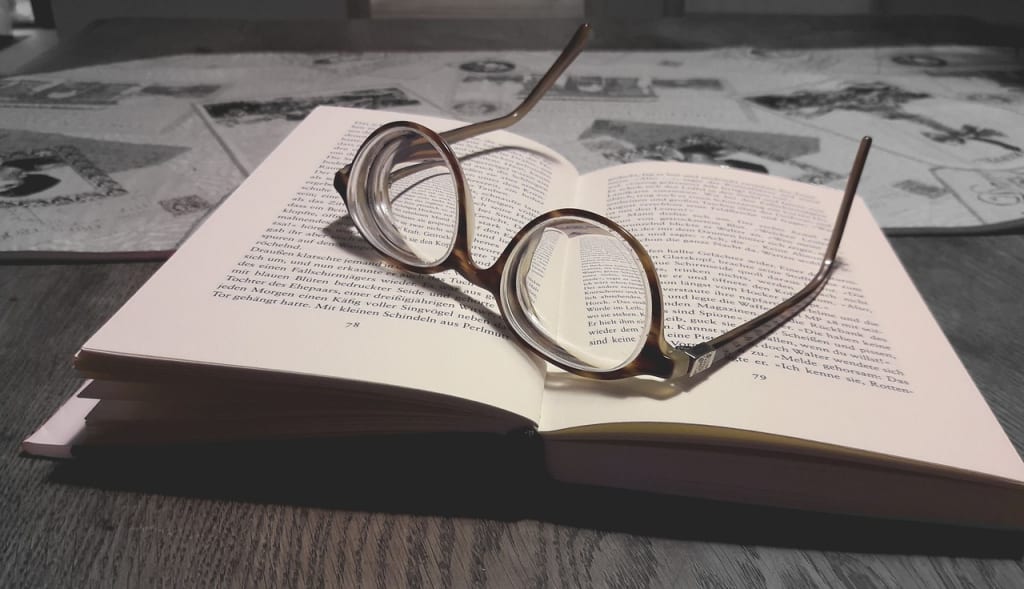Influential Reading and Its Benefits
How does reading affect you?

Reading has been an integral part of learning; it has been one of the most significant sources of information. About 70 years ago, there was no YouTube and television was not very popular; in that era, it was necessary to read newspapers and specifically articles which would be one of the only ways to gain knowledge. Communication using gossip and written letters were also needed, but the wisdom was gained thoroughly by reading. Furthermore, recent studies have shown that specific genres of books have a different effect on you. As an article in The New York Times had published named “Your Brain on Fiction” states that fiction narrative books have a great impact on your mind, and are very important. Moreover, an essay named “On Reading and Books” written by Arthur Schopenhauer claims that reading books with no significance and reason should not be read as it is a waste of time, and reading classics and informative material is helpful. In another text, “Moral Letters to Lucilius” by Seneca expresses that reading is necessary, but skipping books after reading a little is of no use and cannot give any knowledge. I feel any reading is helpful but reading something significant and influential is most beneficial.
Literacy is impactful in many ways, from everyday communication to the biological perspective of the human brain. The New York Times article which summarizes the research on the impact of fiction on the mind is undoubtedly correct but not as significant as the article describes it to be. The author writes: “Stories; this research is showing, stimulate the brain and even change how we act in life.” This statement is true, but this doesn’t occur only with stories, it can happen with movies, sitting in a lecture or even a simple communication with a friend. As another post in The New York Times by John Guida writes, “The influence of movies along with other factors may be quite substantial.” This article implies that reading great fiction helps improve us as humans, but the research shows that depending on the novel it only influences us not for right or wrong.
Arthur Schopenhauer lays out perfectly the one side of the argument concluding some fiction novels don't have a cause. However, Arthur Schopenhauer has said, “There is nothing that so greatly recreates the mind as the works of the old classic writers.” This statement is agreeable as the benefits of reading classic novels are great such as it can make you a better communicator than reading commercial fiction or even to some extent non-fiction books. This idea is also backed by the 2013 study by David Kidd et al. named “Reading Literary Fiction Improves Theory of Mind.” Moreover, there is a part of the essay which is not true; he writes “...person who reads a great deal — that is to say, almost the whole day, and recreates himself by spending the intervals in thoughtless diversion, gradually loses the ability to think for himself.” This statement can be argued as this doesn’t happen, and he is making baseless arguments, and in fact, the truth is that reading anything is helpful as the study by David Kidd has shown.
The importance of picking a book and keeping concentration until the book is thoroughly read is valuable than jumping between books; this point is highlighted in “Moral Letters to Lucilius” by Seneca. In one of the letters Seneca writes, “I tell you that it is the sign of an overnice appetite to toy with many dishes; for when they are manifold and varied, they cloy but do not nourish.” This assumption is correct as books are most beneficial if they are understood entirely, it's all or nothing. Also, another piece of advice Seneca gives is to read about poverty, death, and other issues in the world now. Therefore, informed opinions matter the most and this is the reason why we have experts advising the men in charge.
There has been speculation about whether reading is involuntary or a needed response vital for the human body. An article written in The Guardian, named “Humans Have the Need to Read” written by Gail Rebuck, presents a summary of a scientific research which concludes “...readers create vivid mental simulations of the sounds, sights, tastes and movements described in a textual narrative while simultaneously activating brain regions used to process similar experiences in real life.” This conclusion is valid as after reading a book, we tend to view some aspects of the world differently as we had an experience through the content in the book which made us do so. Moreover, it is a saying that no experience is a bad experience, we can always find something positive in it, and therefore it is possible that any book can positively affect you. However, if the book that is selected will give you an experience which can show you an entirely different view of the world, it is better to choose a book like that. For this reason, reading influential books rather than a book which relates to the reader’s life.
There is an immense need to read as described in a research article summarized by Gerry Everding named “Readers build vivid mental simulations of narrative situations, brain scans suggest.” This article says that reading has become a necessity for humans as there are many abilities that we may lack if we don’t read, as the study states “studies have found this kind of deep reading makes us more empathetic.” They also go on to say that the teenagers have lost empathy and that has a correlation to reading. The reason for this problem is supposed to be the introduction of technology in the modern world, and this article doesn’t explicitly state which types of books allow such behavior as it is targeting all books are helpful.
Overall, all the texts describe their point of view about the advantages and disadvantages of reading, but I believe that there is no downfall in reading it will always be helpful, but it is about the significance of the text and how much you can gain from it. It is essential to understand what the main point of the book is and what it wants you to learn from the reading; it will eliminate the chance of jumping between books as it is no use at all. All in all, the act of reading is analyzed in many different perspectives, and all view share one similarity: they all believe that reading is one of the best ways to grasp information.





Comments
There are no comments for this story
Be the first to respond and start the conversation.